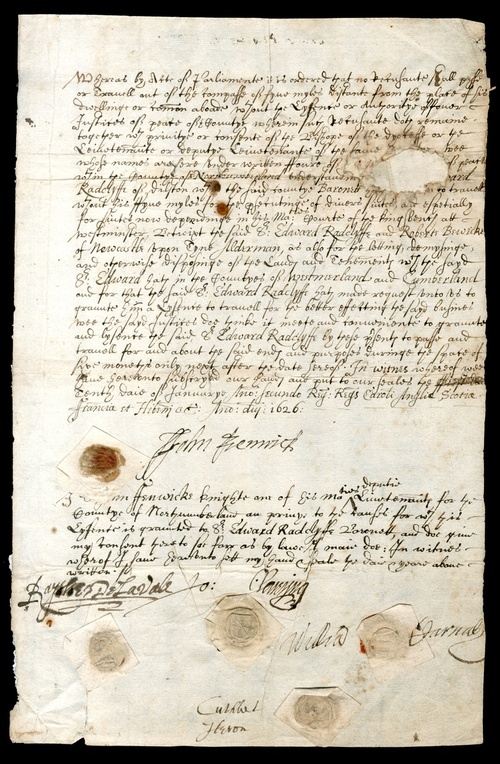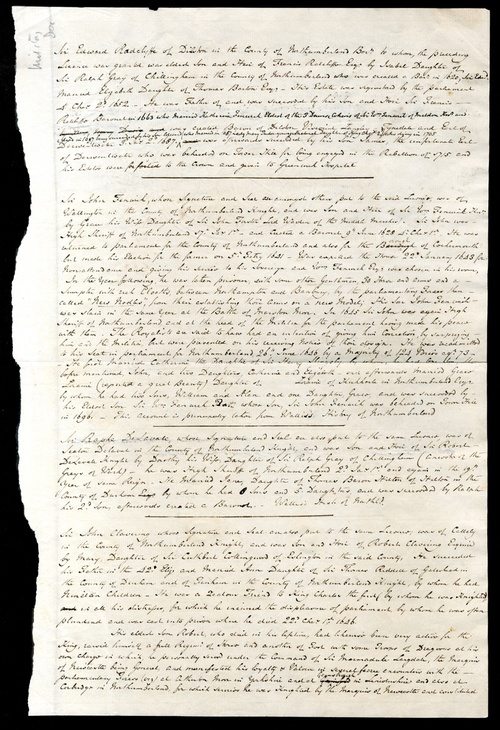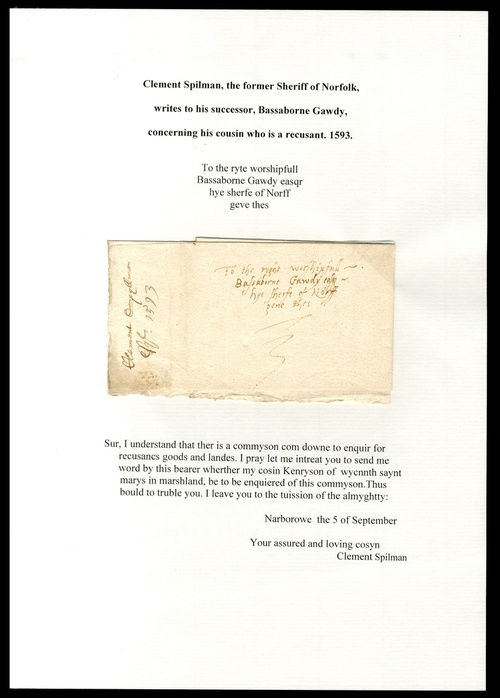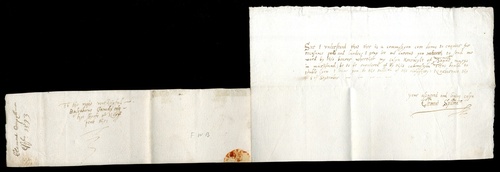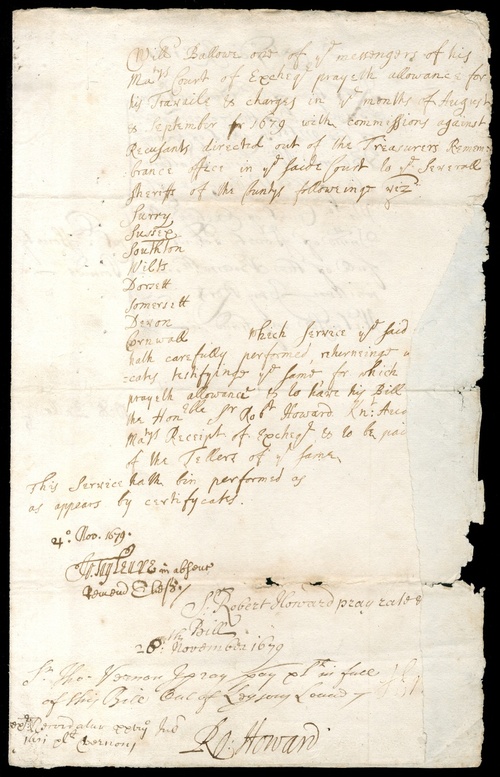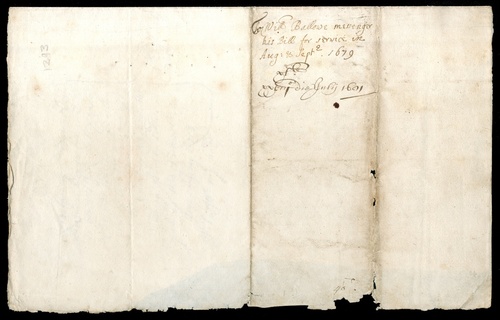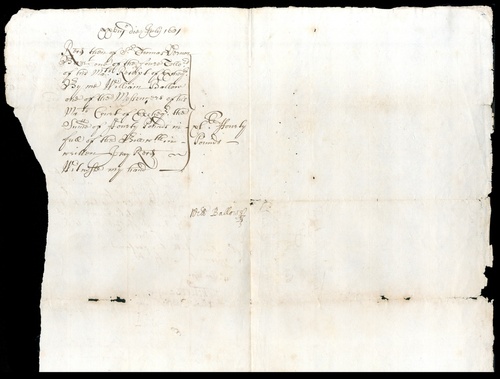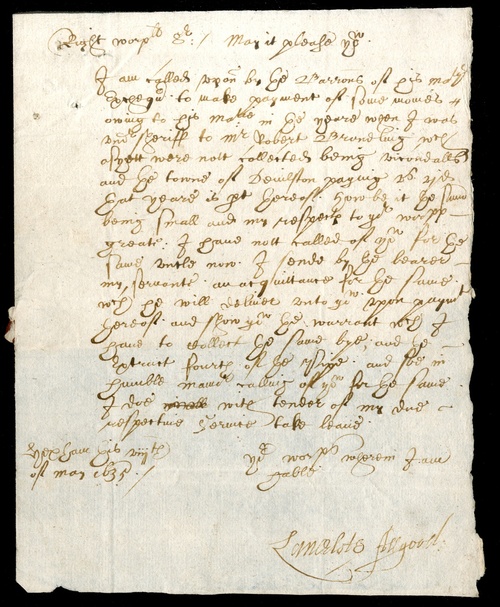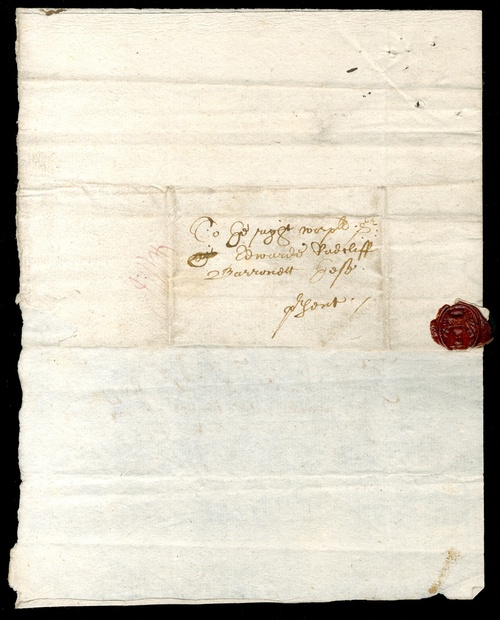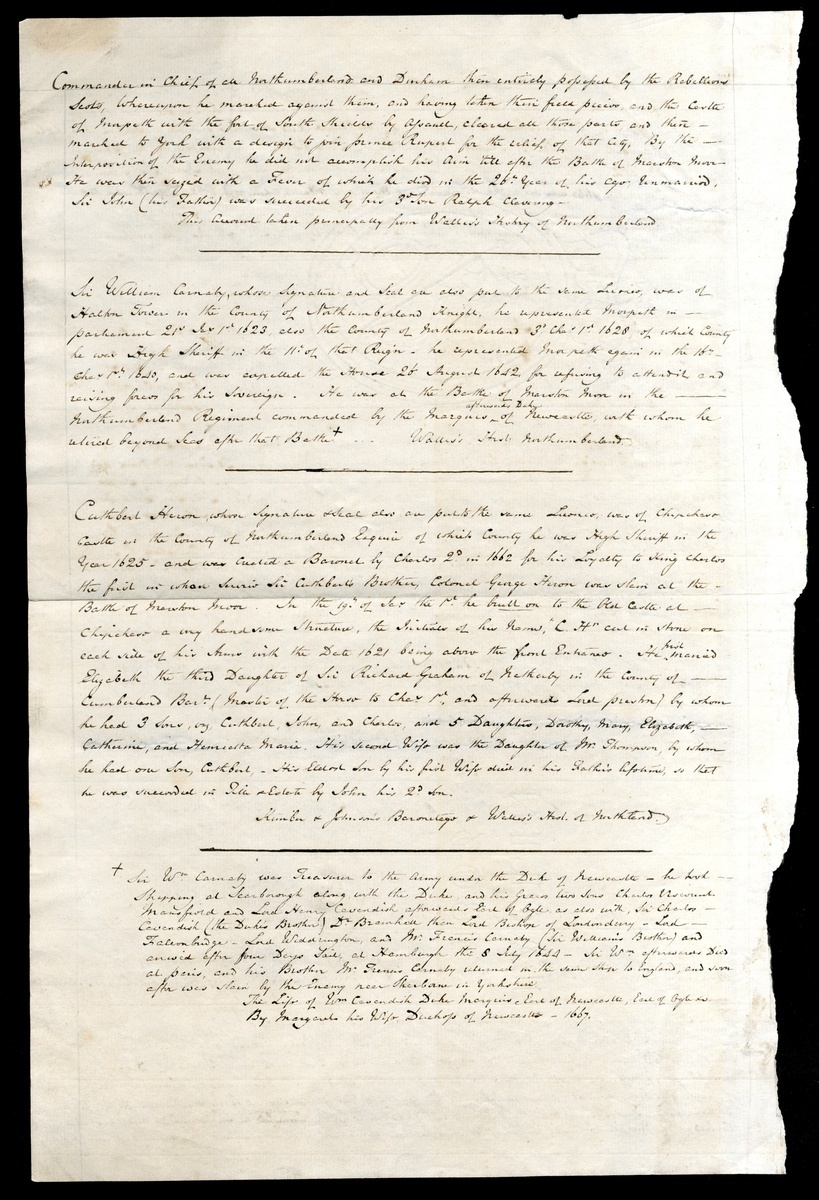Auction: 22066 - Historical Documents, Postal History & Autographs - Featuring the Robin Hunt Collection
Lot: 2088
(x) From the Mayflower Collection
A Most Significant Group of Documents Relating to British Recusants
1593-1679 four documents: 1593 (5 Sept.) ALS with address panel from a Clement Spilman (former Sheriff of Norfolk) to his successor, Bassaborne Gawdy regarding his cousin who he believes to be a recusant, reading "I understand there is a commyson com downe to enquir for recusancs goods and landes". A superb, early private letter with direct reference to Recusants.
1626 (10 January) "Recusant's Licence" signed by Deputy Lord Lieutenant, Sir John Fenwick, and witnessed by four justices of the peace in Northumberland each represented by papered seals, granting the recusant Sir Edward Radcliffe the right to travel more than five miles from his home in order to attend business in the King's Court (Ex. Sothebys Rawlins Collection). A hugely significant document, unusual to not be held by public records;.
1635 (8 May) ALS from Lancelot Allgood to Sir Edward Radcliff regarding "monies owing to his Majestie in the yeare when I ws undersheriff to Mr. Robert Brondling, whcih asyett were not collected being vicondalls and the town of Devilston ... he [servant] will deliver unto yow upon payment hereof and dhow yow the warrant which I have to collect the same bye, and the exctracte fourth of the Pipe".
Vicandalls were regular payment by sheriffs to the crown, charged against the sheriff in the Exchequer accounts knows as the Pipe. Radcliffe was a recusant liable to an annual fine for being one.
1679 (28 November) warrant to pay William Ballowe, a Royal Messenger, £40 for travels between August and September with commissions against Recusants in the courts of Surrey, Sussex, South Hampton, Wiltshire, Dorset, Somerset, Devon and Cornwall. Signed "Ro: Howard" and by Ballowe on receipt.
An immensely rare trio with enormous interest and relevance to the little known society of recusants
Notes: The Recusant movement formed in response to the advent of the Church of England after the English Reformation. Recusants clung to the ideals of the Catholic Church. In 1558 Queen Elizabeth passed the Recusancy Acts that imposed fines, confiscation of property, imprisonment or death on those found guilty. Generally recusants belonged to gentry families in Northern England. Among other well-known recusants, Guy Fawkes is perhaps the best known who famously attempted to blow up the Houses of Parliament on 5th November 1605.
Subject to 5% tax on Hammer Price in addition to 20% VAT on Buyer’s Premium.
Sold for
£2,600
Starting price
£1200

